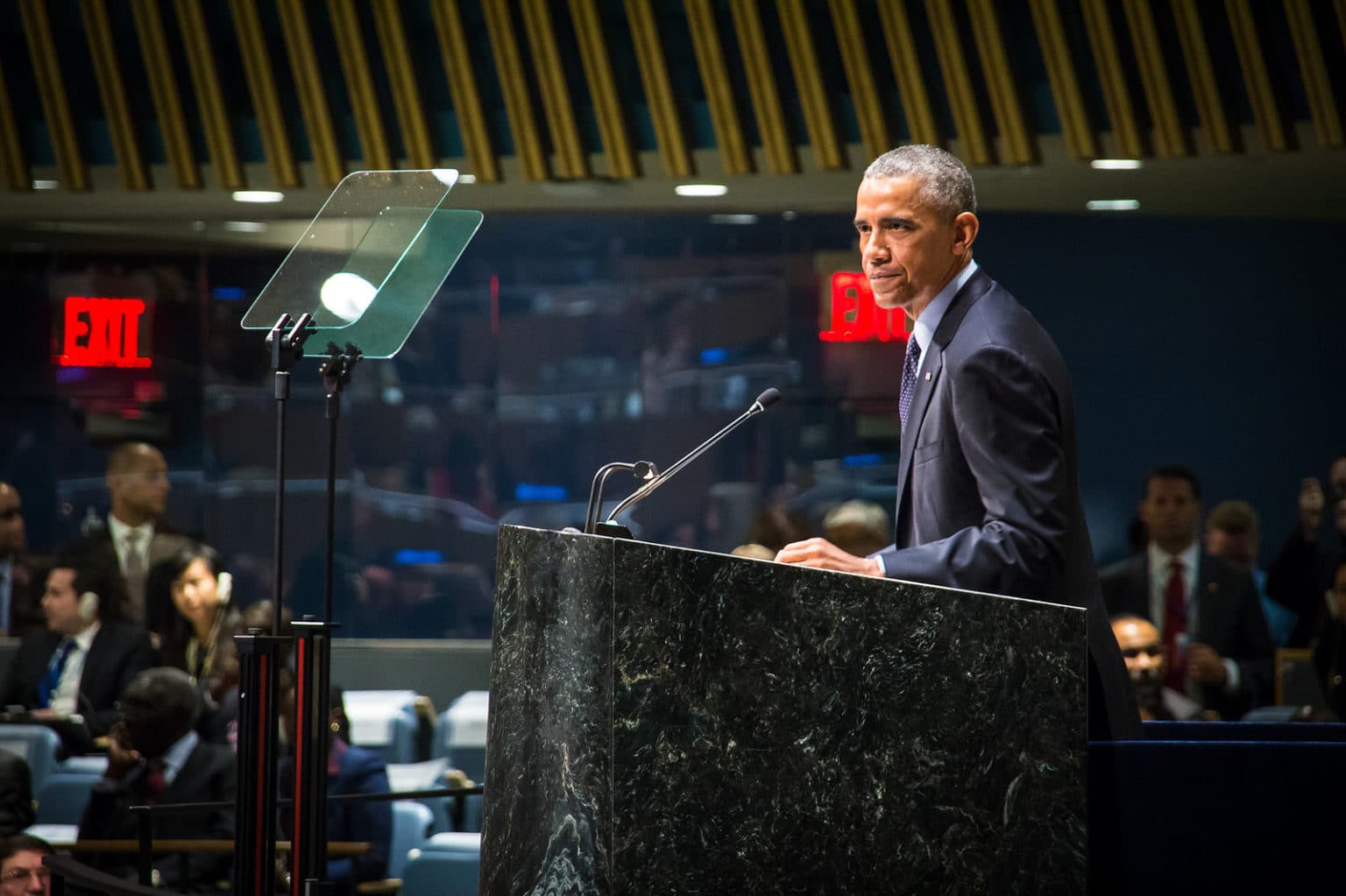175 nations signed the Paris Climate Agreement last Friday, setting a record for the most countries to sign a U.N. agreement on opening day.
Earlier in the week, even before Secretary of State John Kerry officially signed on behalf of the U.S. with his granddaughter in his lap, more than 300 environmental, faith, health and social justice organizations filed a legal petition calling on the Obama Administration to declare a national emergency and end all U.S. crude oil exports as a means of meeting its commitments under the Paris Agreement.
According to the groups, led by the Center for Biological Diversity and Food & Water Watch, President Obama could immediately halt the export of crude oil under executive legal authority granted to him by the 2016 Appropriations Act and the National Emergencies Act.
The 40-year-old U.S. crude oil export ban was repealed last December when President Obama signed an appropriations bill sent to him by Congress that included a measure lifting the ban, which the oil industry had been clamoring for — and using a number of specious arguments to justify — for years.
The groups that filed the legal petition argue that lifting the export ban “has taken our country in exactly the wrong direction at a time when we must urgently transition to the low-carbon future [Obama has] publicly embraced.”
“While Americans are increasingly turning against fracking and fossil fuels, President Obama has shockingly seen fit to double down on oil extraction to facilitate needless exports,” Food & Water Watch Executive Director Wenonah Hauter said in a statement. “But the president has a chance to make this right by acknowledging our emerging climate emergency and halting oil exports now. He must seize this opportunity.”
There is no doubt that climate change is a national emergency, the groups said, and lifting the ban will only compound the damage. According to a 2015 analysis by the Center for American Progress (CAP), U.S. oil production could increase by as much as 3.3 million barrels per day due to the lifting of the ban. That’s the equivalent of sending 947 additional Exxon Valdez-sized oil tankers out on the seas every year.
Burning that oil would result in more than 515 million metric tons of carbon pollution per year, CAP found — about equal to the annual emissions of 108 million passenger cars or 135 coal-fired power plants.
In other words, lifting the crude oil export ban is incompatible with commitments made by the U.S. to do its part in combating climate change.
“Prohibiting crude exports is an essential component of efforts to limit global warming to no more than 1.5ºC above pre-industrial levels — the crucial goal of the Paris Agreement,” according to the legal petition.
In addition to climate damage, the petition also highlights threats to public health and safety created by widespread fracking, which has played a key role in driving the increased production of U.S. crude oil over the past few years. It is this glut in the domestic market, and the low prices it brought with it, that oil producers were attempting to sidestep in aggressively lobbying for repeal of the ban.
“As the majority of new wells will be developed through unconventional, ultra-hazardous hydraulic fracturing, American communities will experience increased toxic air pollution, drinking water contamination, decimation of wildlife habitat, risk of explosions from ‘bomb trains’ carrying crude oil cross-country, and surges in earthquakes like those caused by the oil industry in Oklahoma,” the groups write in the petition.
President Obama must declare a climate emergency and reinstate the crude oil export ban in order to give the U.S. a chance to meet the Paris Agreement’s climate goals, the Center for Biological Diversity’s Jean Su said. The Appropriations Act grants the president the explicit legal authority to prohibit crude oil exports in the case of a “national emergency.”
“The president has the legal authority to reverse the terrible mistake he made in approving an end to the longstanding ban on crude exports,” Su said in a statement. “He has to seize this opportunity to protect our climate and U.S. communities from drilling and fracking.”
Photo Credit: Behind the scenes at the UN Climate Summit, Sept 23, 2014, by United Nations / John Gillespie.
Subscribe to our newsletter
Stay up to date with DeSmog news and alerts






